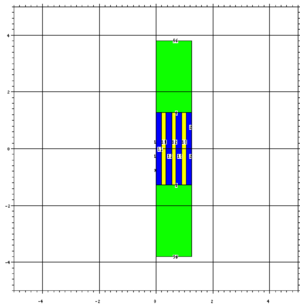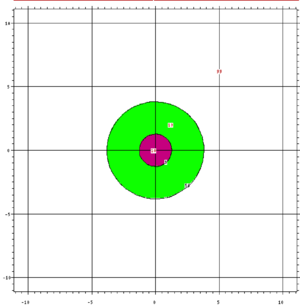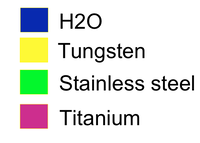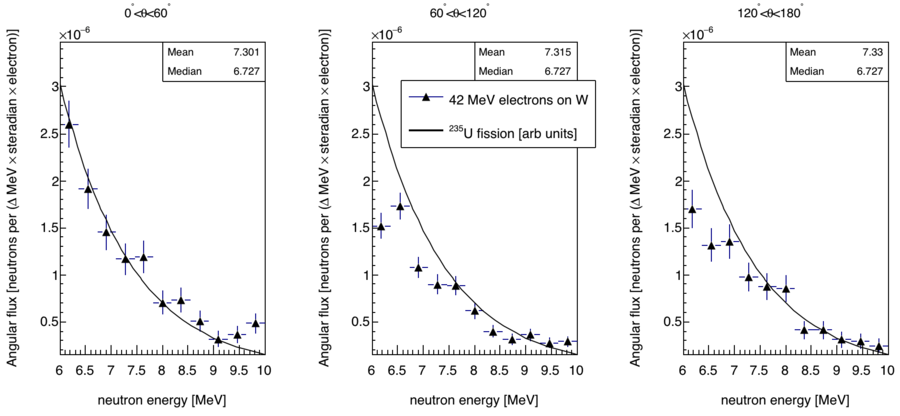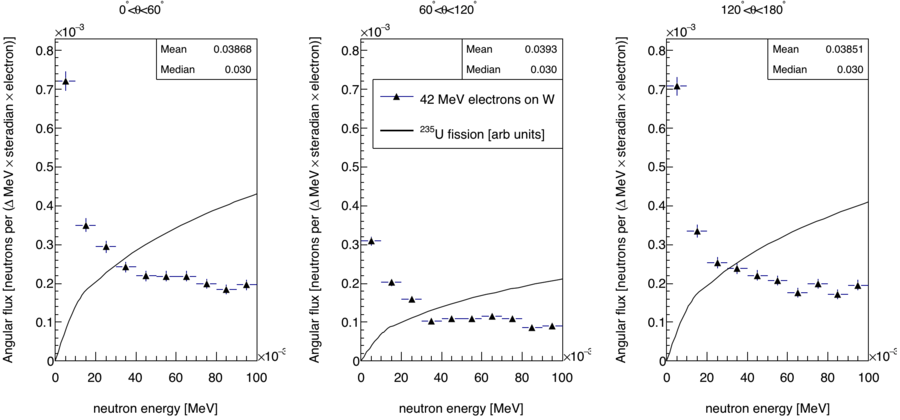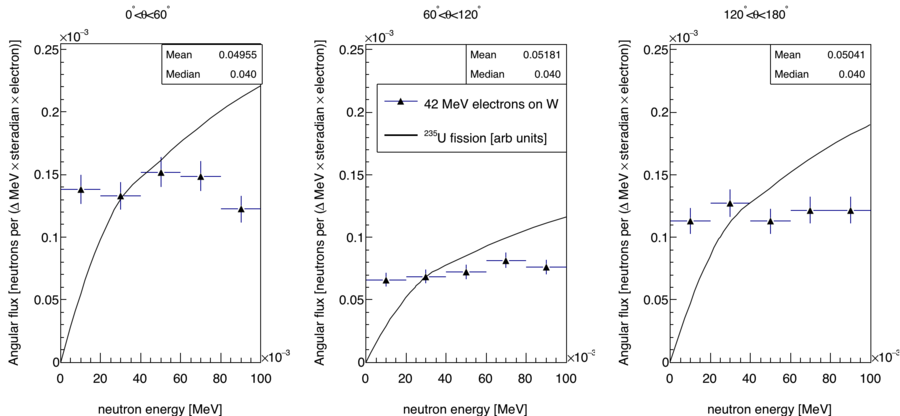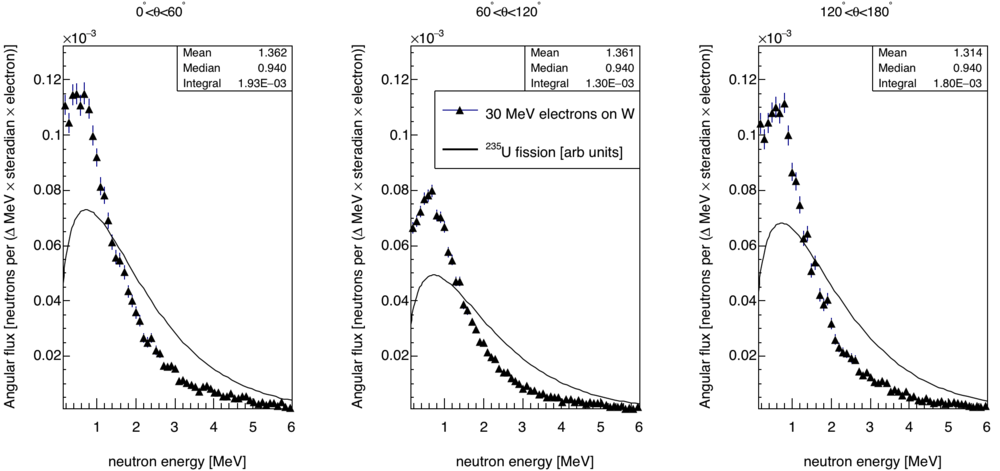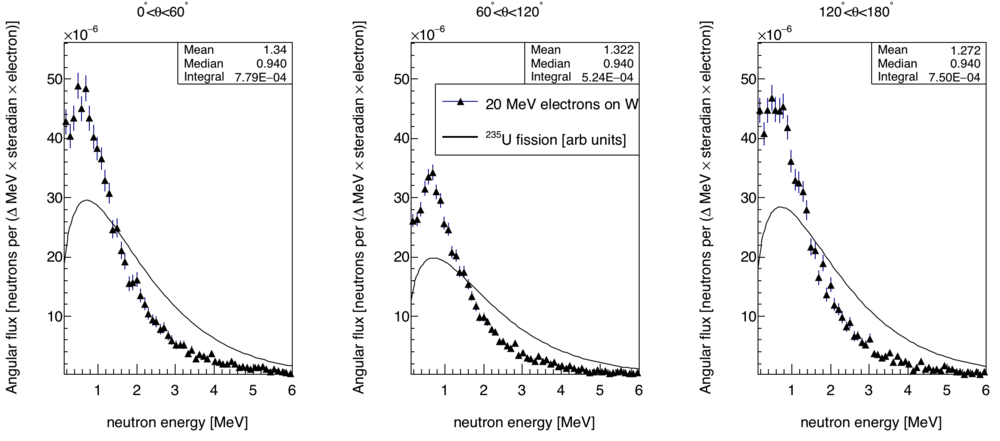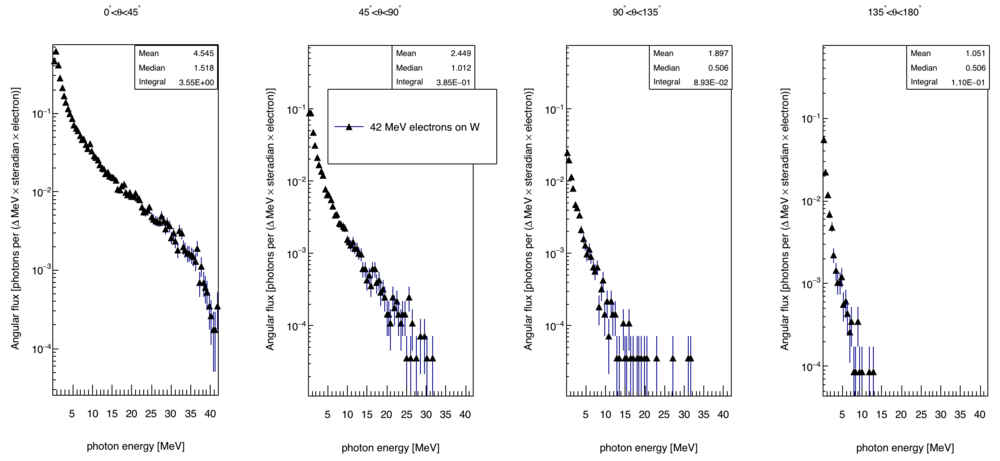MCNP Sim of Jack Converter
Simulation inputs
MCNP input deck: File:MCNP Jack Converter.txt.
The cross-section plots below show that the vast majority photo-neutrons are produced by (G,n) on Tungsten-184.
Geometry
Materials legend for figures:
.
Assumptions
The beam spot size was given a diameter of 0.5 based off of the size of a burn mark on a converter that got hot during irradiation. Electrons are mono energetic.
Results
The plots below show the energy distribution for neutrons exiting the converter at three different intervals of their angle w.r.t. the incident electron beam. The neutron energy spectrum of the neutron-induced fission of U235 is also in each shown for comparison.
The mean and median energy of fission neutrons from U235 is 1.94 MeV and 1.66 MeV, respectively. The mean and median energy of produced neurons are also shown on each plot.
Neutron energy spectra from 42 MeV electrons
>6 MeV neutrons
With water in the converter (no significant difference with no water):
0.13-7 MeV neutrons
With water in the converter (no significant difference with no water):
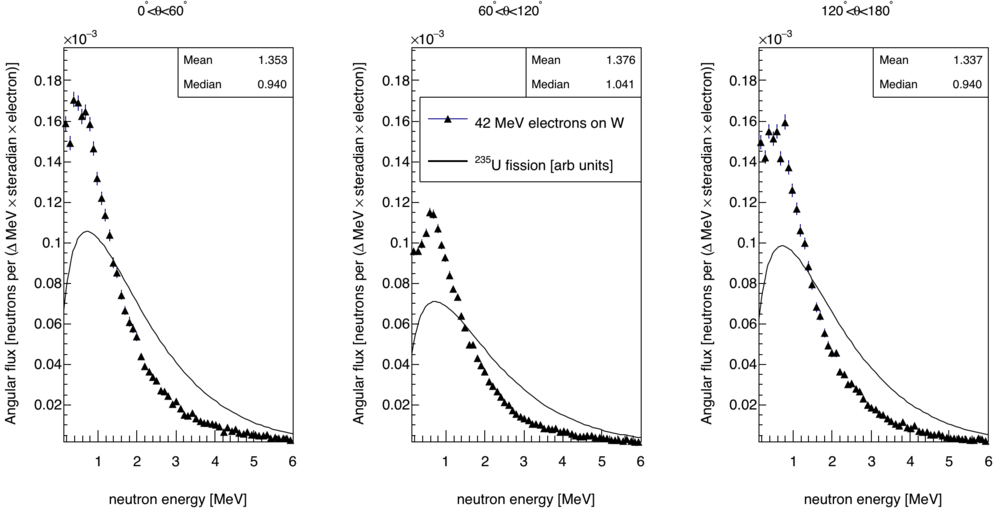
0-0.1 MeV neutrons, with and without water
With water:
Without water:
Neutron energy spectra from 30 MeV electrons
0.13-7 MeV neutrons
Neutron energy spectra from 20 MeV electrons
Photon energy spectra from 42 MeV electrons
The plot below shows the energy distribution of photons exiting the converter for four different ranges of angle w.r.t. the incident electron beam

